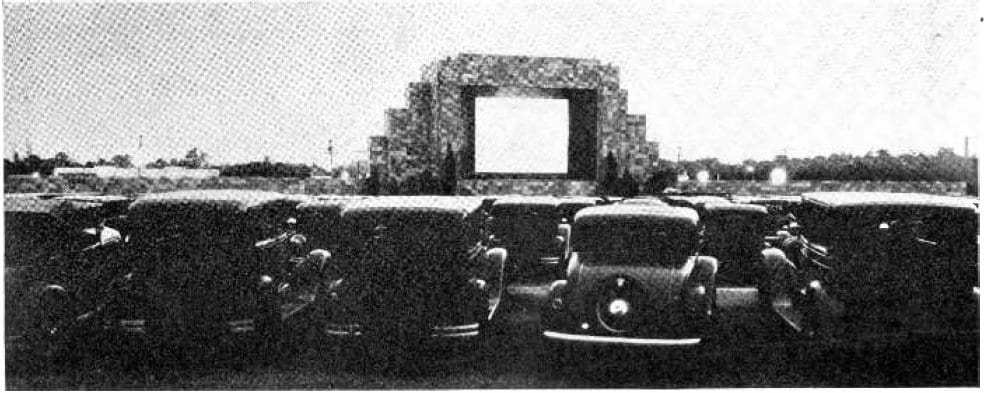I love a good drive-in movie. You pull in, drop the tailgate, spread out a blanket, and enjoy the show.
Drive-in movies are about as American as you get, not only because they’ve been around in the U.S. for a long time, but also because this is where the whole tradition began.
Drive-ins actually date back to the 1915 (in New Mexico) but the first patented drive-in opened in Pennsauken, New Jersey, in 1933. Richard Hollingshead was the man behind the first drive-in and he advertised his business as a place where “the whole family is welcome, regardless of how noisy the children are.”

Photo Credit: Public Domain
Until World War II, there were still only 15 drive-in theaters across the United States. It wasn’t until after World War II and the resulting economic boom that drive-in theaters exploded across the country. Car ownership became a part of everyday American life and the demand for entertainment and drive-ins swept the nation.
By 1958, there were over 4,000 drive-in theaters spread across the U.S.
There was a decline in this phenomenon from the 1970s through the 1990s due to a number of factors including the rise of home video. The energy crisis of the 1970s didn’t help matters as people relied less on automobiles. Also, the implementation of daylight saving time in the 1970s made movies start an hour later and caused crowds to stay away.
The numbers continued to dwindle and today there are only 305 drive-in theaters left in the U.S. All but five states still have at least one drive-in theater. The exceptions are Alaska, Delaware, Hawaii, Louisiana, and North Dakota.
But, there’s been a bit of a change lately. With pretty much everything being shut down indefinitely because of the mayhem caused by the coronavirus, drive-ins are currently experiencing a bit of a revival. Because cars don’t count as a communal space, drive-ins in the U.S. have been crowded as of late.
Josh Frank, the owner of a drive-in theater in Austin, Texas, said,
“Who would have thought that drive-in movies would one day again become the most attractive option for going out?”
Even before the coronavirus pandemic, drive-ins around the country had been experiencing a bit of a renaissance the past few years.
Josh Frank recently opened a second drive-in about 25 miles from Austin in the town of Round Rock.
Frank said,
“It’s been really, really, really something.
If I had opened a Round Rock location years ago, I would be maybe three decades closer to retirement.”
A man named Spencer Folmar is even planning to open what he claims is the world’s biggest drive-in theater in Florida.
“A cineplex can be a generic experience.
You might as well stream at home.
I want to create this world of cinema with a unique design.”
While we can only hope that the effects of the coronavirus on society are short-lived, let’s all hope that the drive-in, that perfect little piece of Americana, makes a permanent comeback.
The post Drive-In Movie Are Currently Thriving appeared first on UberFacts.



 #cinema #classicfilm #classic #drivein #driveinmovie #doublefeature #driveinmovies #driveintheater #film #driveinmovies #filmpreservation #driveinmovietheater #lehighton #movies #movieposter #movietheater #nostalgia #phillyfilm #retro #VHS #mahoningdit #35mm #mahoningdriveintheater #mahoningdrivein #preservation #historic
#cinema #classicfilm #classic #drivein #driveinmovie #doublefeature #driveinmovies #driveintheater #film #driveinmovies #filmpreservation #driveinmovietheater #lehighton #movies #movieposter #movietheater #nostalgia #phillyfilm #retro #VHS #mahoningdit #35mm #mahoningdriveintheater #mahoningdrivein #preservation #historic